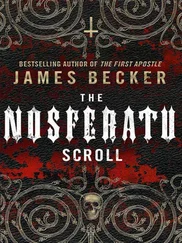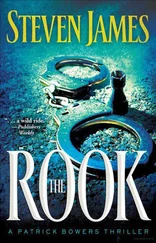James Becker - Echo of the Reich
Здесь есть возможность читать онлайн «James Becker - Echo of the Reich» весь текст электронной книги совершенно бесплатно (целиком полную версию без сокращений). В некоторых случаях можно слушать аудио, скачать через торрент в формате fb2 и присутствует краткое содержание. Жанр: Триллер, на английском языке. Описание произведения, (предисловие) а так же отзывы посетителей доступны на портале библиотеки ЛибКат.
- Название:Echo of the Reich
- Автор:
- Жанр:
- Год:неизвестен
- ISBN:нет данных
- Рейтинг книги:3 / 5. Голосов: 1
-
Избранное:Добавить в избранное
- Отзывы:
-
Ваша оценка:
- 60
- 1
- 2
- 3
- 4
- 5
Echo of the Reich: краткое содержание, описание и аннотация
Предлагаем к чтению аннотацию, описание, краткое содержание или предисловие (зависит от того, что написал сам автор книги «Echo of the Reich»). Если вы не нашли необходимую информацию о книге — напишите в комментариях, мы постараемся отыскать её.
Echo of the Reich — читать онлайн бесплатно полную книгу (весь текст) целиком
Ниже представлен текст книги, разбитый по страницам. Система сохранения места последней прочитанной страницы, позволяет с удобством читать онлайн бесплатно книгу «Echo of the Reich», без необходимости каждый раз заново искать на чём Вы остановились. Поставьте закладку, и сможете в любой момент перейти на страницу, на которой закончили чтение.
Интервал:
Закладка:
He switched the beam to the wall directly under the opening of the vent and noticed that there was a power socket attached to the stone, and a cable ran from it to the fan he’d kicked out of the duct.
Bronson led the way toward the doorway on the opposite side of the room and shone the flashlight into the space outside. A corridor, hacked through the rock, extended in both directions.
“Left or right?” he asked.
“Doesn’t matter. We’ll probably need to go in both directions. For now, go left. That’ll probably take us back toward the dynamited entrance, and we can get our bearings from that.”
As they walked down the corridor, Bronson stopped suddenly and shone the beam of his flashlight down at the floor.
“Tire marks,” he said. “Not a modern tread pattern, obviously, so they clearly brought the odd vehicle in here. Maybe to take away the Bell just before they blew the entrance, or maybe just to deliver supplies.”
He shone the flashlight at the walls. “It’s not very wide, but I guess a small truck could get down here. The tunnel’s pretty straight, as far as I can see.”
They walked on, and within a few dozen yards they found the entrance. Or what was left of it. The damage on the inside of the complex mirrored what Angela had noticed outside. A massive pile of boulders, rocks and rubble completely blocked the tunnel. Whoever had blown the entrance had made a competent and comprehensive job of it.
“That seems clear enough,” Angela said. “This was what the reports described, so somewhere down there”-she pointed back the way they’d come-“is the chamber that was used as the test facility for Die Glocke. All we have to do now is find it and learn what we can from whatever’s left there.”
“Right,” Bronson said, and led the way down the corridor, the beam of his light playing over the walls as he walked.
There were numerous openings on both sides of the corridor, all either without doors at all or with doors that were standing wide-open. Some of the rooms had clearly been used as offices, equipped with desks and chairs, and each time they looked into a room and saw anything in it, they stepped inside to investigate.
In several rooms the chairs had toppled over, evidence of a hasty departure or possibly caused by the blast wave of the explosion that had sealed the tunnel entrance. In some, dust-covered paper littered the floor and covered the desks, but Angela scarcely gave it more than a cursory glance.
“Isn’t it worth checking some of these documents?” Bronson asked.
Angela shook her head. “If I was a German-speaking historian specializing in the Second World War, it might be, but my guess is that most of this stuff will just be routine administration, orders for food or fuel or equipment, that kind of thing. Anything that was important to the project would have been taken away with the device itself.”
The papers were generally speaking in good condition, probably because the interior of the mine seemed very dry-certainly there was no smell of damp, and the walls were dry to the touch. The edges of some were chewed, evidence of rats or mice, or maybe even insect activity.
Bronson wasn’t sure that Angela was right about the papers. They knew that the Germans had left the place in a hurry, believing it would soon be overrun by Allied forces, and in those circumstances he thought it was possible, maybe even probable, that important papers might have inadvertently been left behind. But he also realized that as neither of them spoke German, they would be unlikely to recognize any significant documentation unless they spent hours doing translations.
And he knew that they didn’t have the time to spare.
“So what are we looking for, exactly?” he asked.
“To be perfectly honest, I don’t really know,” Angela replied. “I wanted to find the chamber where the Bell was operated, because I thought if we could take a look at the controls and instrumentation they used to operate it, we might get a better idea about what it was supposed to do.”
That made sense to Bronson.
Moments later, the beam of his flashlight fell on a door that was closed. In fact, it wasn’t just closed, it was bolted shut. Two large bolts, the steel almost an inch in diameter, had been driven home into sockets set into the rock around the door.
“That’s different,” he said, pointing.
“That could be it,” Angela said, and strode across to the door.
Bronson seized the top bolt and tugged at it, but it didn’t move.
“I think it’s pretty much rusted in place,” he said, handing his flashlight to Angela and changing his grip.
With both his hands tugging on the bolt, it did move. Not easily, and not far, but he knew it was only a matter of time. He wiggled it back and forth, each movement freeing it a little more, until after a minute or so, with a final defiant squeal, it slammed back as Bronson’s efforts at last pulled it free of the socket.
“One down,” he muttered, and grabbed the second bolt.
For some reason, that was easier to move, and in a few seconds Bronson was able to grab the edge of the door and swing it open.
Angela sniffed as the door swung open, and an unexpectedly familiar scent wafted out of the closed room.
“It smells almost like a church,” she said. “Old stones. Old stones and something else.”
The beam of Bronson’s flashlight, a circle of brilliant white light in the blackness of the room, played over the walls and then dropped down to the floor. At first, Angela couldn’t make out what she was seeing: the floor was covered with what looked like ragged, frayed and torn clothing interspersed by a confused tangle of white and brown shapes.
Then she caught her breath as she realized what she was staring at. The floor was carpeted with old corpses. A mass of rotten clothing from which skulls and bones, some showing white, others with brown and mummified skin and flesh still adhering to them, projected. She’d seen bones and bodies before, like everybody who trained as an archaeologist or in any of the related disciplines. But this was a sight she knew she would never forget.
“Oh, dear God,” she murmured, her voice choked with emotion. “So the reports were right. They couldn’t take all the scientists with them, so they massacred them to make sure they kept their mouths shut.” She closed her eyes for a moment, then looked again at the scene in front of her. “There must be at least twenty or thirty bodies here.”
“Old stones-and old bones,” Bronson agreed.
41
26 July 2012
The white light of the flashlight flickered again over the confused tangle of bones and flesh and clothing.
“Most of them look as if they were shot in the head,” Bronson suggested, “so maybe the SS just locked them in here and then sent in a couple of men with pistols to do the job. No-” he broke off. “I’m wrong. See that piece of wood over there?”
He pointed to a spot near the center of the room, and Angela nodded.
“I’m pretty sure that’s the handle of a German stick grenade, what our boys used to call a potato masher. They must have made them all wait in here, then lobbed in a hand grenade or two, waited for the bang and then gone back in to finish them off.”
“Callous bastards,” Angela muttered, as she recovered her composure. “These people were almost certainly Germans, German scientists, working for the Third Reich and most of them probably even supporting Hitler. And this is the payoff they got for their loyalty and dedication. I can’t even begin to comprehend the mindset of the kind of people who would do this.”
“In the end,” Bronson said, “it might have just been a case of simple logistics. They might have only had enough space on the aircraft for a dozen or so people, plus the Bell. And they were probably desperate to prevent any documentation or-worse-any of the people involved in the project from being captured by the Russians or any of the other Allied forces. The fastest, easiest, cheapest, most efficient, and above all the most certain, way to ensure that that couldn’t possibly happen was to kill them all.”
Читать дальшеИнтервал:
Закладка:
Похожие книги на «Echo of the Reich»
Представляем Вашему вниманию похожие книги на «Echo of the Reich» списком для выбора. Мы отобрали схожую по названию и смыслу литературу в надежде предоставить читателям больше вариантов отыскать новые, интересные, ещё непрочитанные произведения.
Обсуждение, отзывы о книге «Echo of the Reich» и просто собственные мнения читателей. Оставьте ваши комментарии, напишите, что Вы думаете о произведении, его смысле или главных героях. Укажите что конкретно понравилось, а что нет, и почему Вы так считаете.












